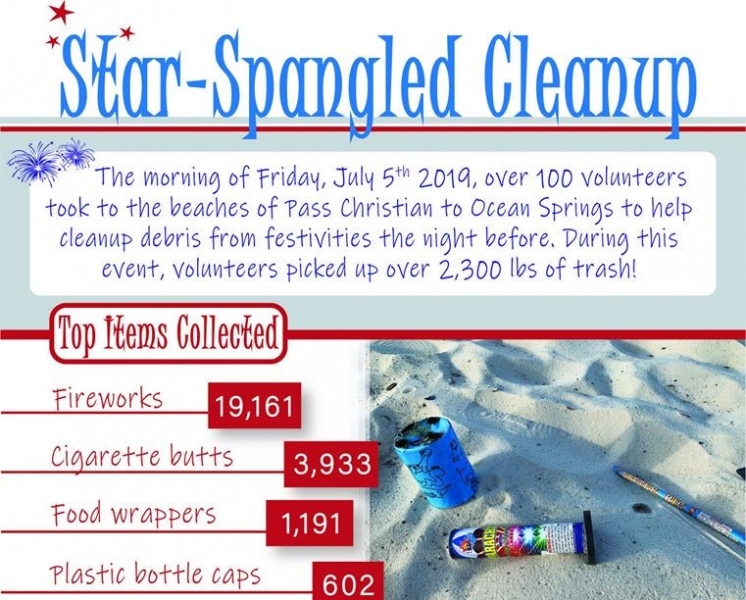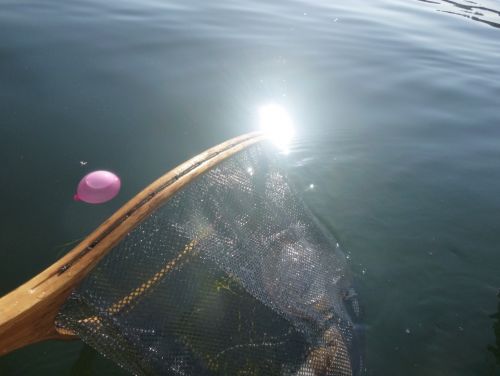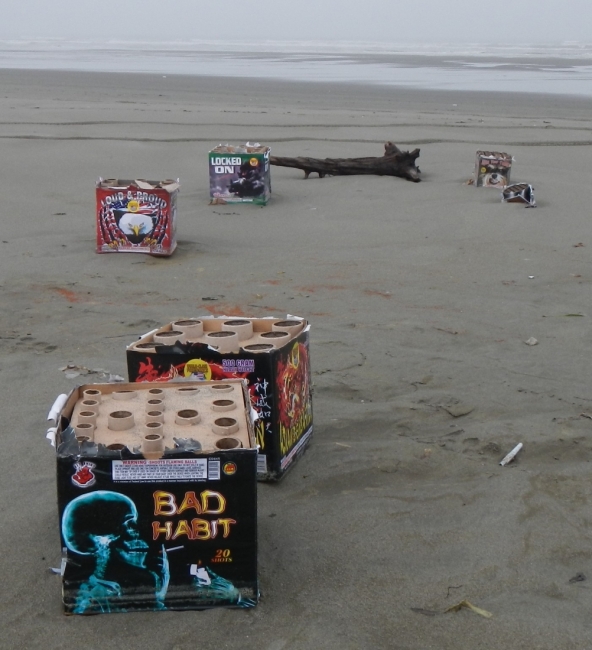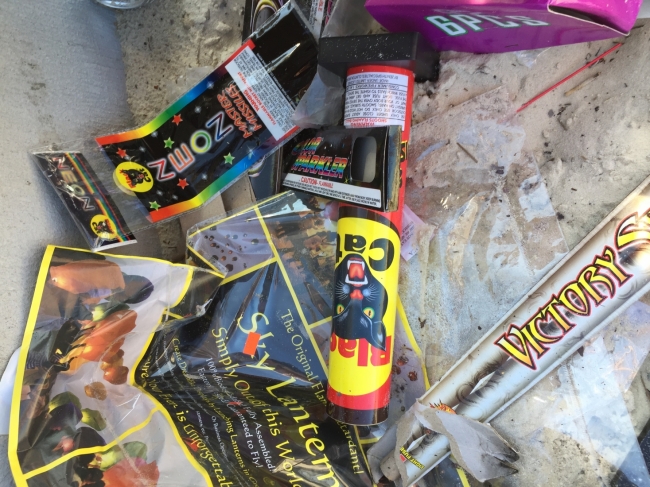What comes to mind when asked “How do you celebrate the Fourth of July?” Do you think of grilling outside, setting off fireworks, and cleaning up with a broom and dustpan? Wait, did you just say a broom and dustpan? That’s right, after a night of celebrating with fireworks, it is not uncommon to find streets, beaches, and lakes littered with debris. Pieces of plastic and cardboard are lightweight and can easily make their way to the water, where they can become marine debris. Here’s a look back at how our partners have coordinated or volunteered in “Fifth of July cleanups” and how we can use our own broom and dustpan to clean up firework debris.
The Mississippi Coastal Cleanup, with support from the NOAA Marine Debris Program, works with Gulf Coast restaurants to reduce their plastic waste - but that’s not all! They have also cleaned up all of the trash and debris left on Mississippi’s beaches following the Fourth of July, setting a great example for others looking to celebrate and act as a steward of the environment during the holiday. Following past celebrations, “Star-Spangled Cleanup” efforts worked to remove firework debris as quickly as possible before it is buried in the sand, blown or washed away by wind or rain, or forgotten. In 2019, over 100 volunteers collected over 2,300 pounds of trash which included fireworks, cigarette butts, and food wrappers.

On July 4, 2018, the elaborate and masterful Fourth of July fireworks display on Lake Union in Seattle, Washington, attracted tens of thousands of people. Unfortunately, when July fifth rolls around, fragments of fireworks and trash are left floating on the lake. The Pacific Northwest Regional Coordinator for NOAA’s Marine Debris Program, Nir Barnea (since retired), joined volunteers for a July fifth debris cleanup coordinated by the Puget SoundKeeper. Using kayaks donated from a local organization, the volunteers paddled across Lake Union looking for marine debris. They used trash grabbers and small nets to collect floating debris and placed them in bags, which were later weighed and the trash disposed of properly. More volunteers fanned out in neighborhoods and parks around the lake to remove debris before it reached the water. The July fifth cleanup is one of many popular weekly kayak cleanups coordinated by Puget SoundKeeper and Northwest Outdoor Center on Lake Union throughout the year.

July fourth and fifth, 2020 may look a little different this year and less community cleanups are scheduled. But we can still help to prevent firework debris from becoming marine debris right from our own home. On July fifth, grab your broom and dust pan and sweep up and dispose of any debris found around your yard. Not sure what you can recycle or throw out? Visit the Consumer Product Safety Commission website to learn how to properly and safely handle and dispose of used fireworks. By celebrating the Fourth of July with our own home cleanup, we can honor our country through protecting our beloved coastal environments, Great Lakes, and the animals who rely on these habitats.



Love it! Keep up the great work!